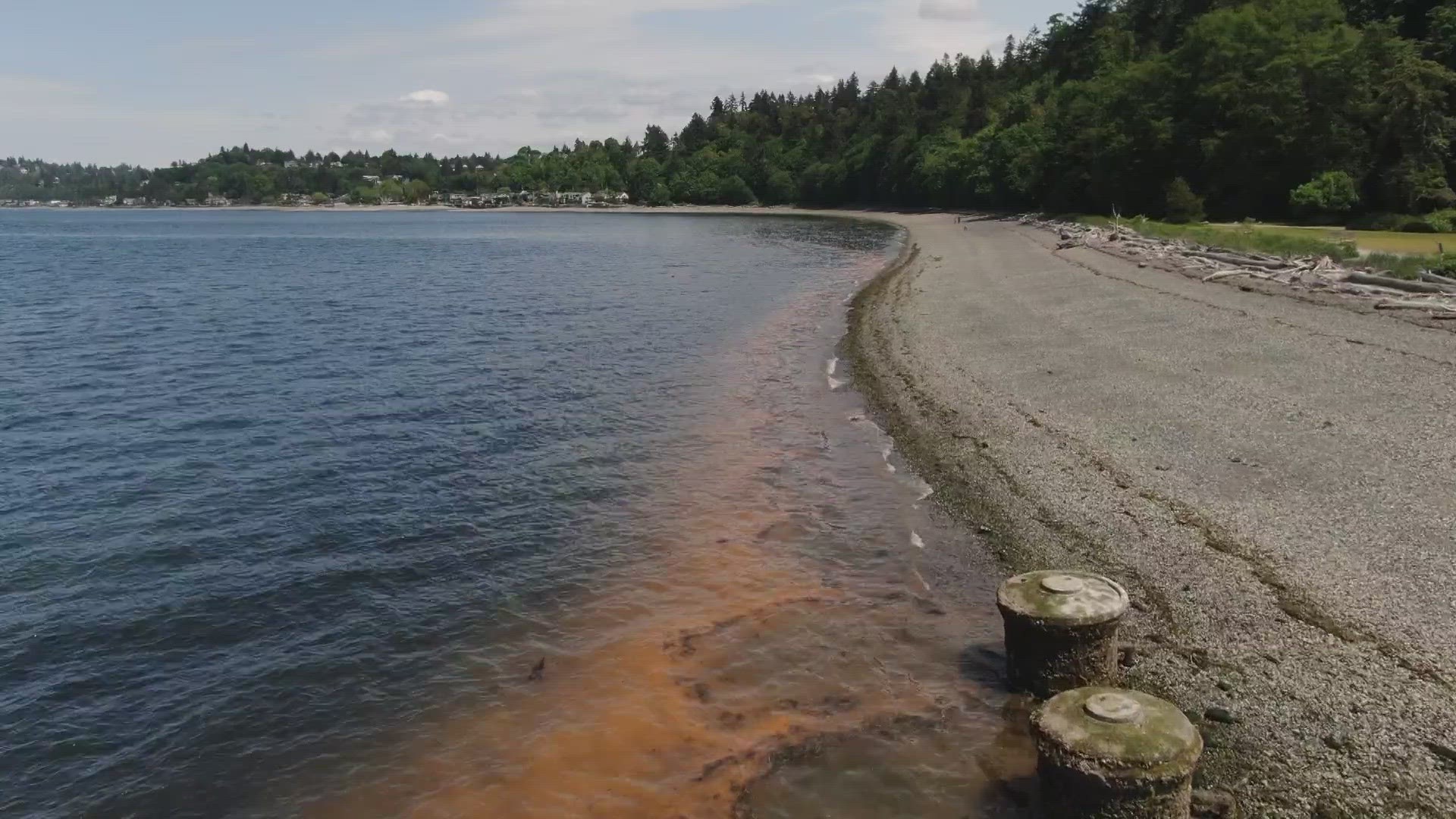SEATTLE — If you were in the West Seattle area Tuesday you may have seen an interesting phenomenon: Orange water.
A photo from viewer Roger G Bigney captured orange water near Lincoln Park in West Seattle on Tuesday. This phenomenon was caused by a Noctiluca bloom, according to the Washington Department of Ecology. The agency said it did not find the blooms last week, but they have been getting reports of Noctiluca in the last few days.
The blooms that can cause orange water are seasonal and can be exacerbated by excess nitrogen and other nutrients entering the water from humans, according to state officials.
What is it?
The Department of Ecology said Noctiluca is a single-celled organism in a group called dinoflagellates that eats smaller phytoplankton and planktonic larvae that make up the base of a healthy marine food chain. This organism is highly concentrated with ammonia, making them unappetizing prey in the food chain. Several studies have shown this ammonia has a negative impact on juvenile fish within the population.
Noctiluca is naturally occurring and blooms have been observed and recorded in Puget Sound since the 1940s, according to the agency. But the state agency said it is more concerned that human-caused nutrient over-enrichment is increasing the bloom's intensity, changing its timing and increasing the distribution of Noctiluca blooms.
Researchers with the Department of Ecology attached sensors to ferry vessels to measure plankton populations between Seattle and Victoria, British Columbia. The study found feeding patterns led to a boom and bust of the plankton populations across Puget Sound.
What causes these spring and summer blooms?
The Department of Ecology said Puget Sound receives an influx of fresh water from melting snow fueling local rivers each spring. When the less dense fresh water flows into Puget Sound and mixes with saltwater it creates a warm, nutrient-rich surface layer that supports growing plankton populations.
According to the agency, extra nitrogen and other nutrients that enter Puget Sound from human and natural sources help feed plankton populations until their populations grow to bloom. Once the plankton bloom and use all the nutrients in the surface water, their growth will start slowing down until they die and sink deeper toward the ocean floor to decay.
The Pacific Northwest's climate patterns mean spring and summer are longer days, with warmer temperatures and few storms. The perfect mix, the Department of Ecology said, causes water to circulate slower and increase layering within the water.
This is what makes the orange hue in the water more visible.
Is this harmful?
State officials said the plankton is not toxic itself, but the extreme amount of Noctiluca indicates an unbalanced ecological system. This leads to many trickle-down effects that affect the marine food web in Puget Sound.

